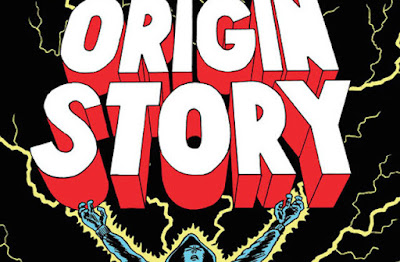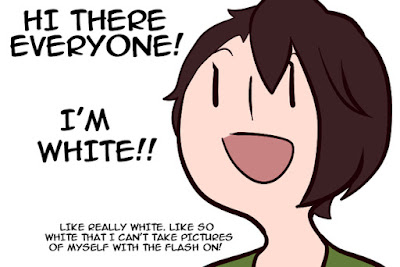 |
| source |
As of this writing, I’m
approaching the end of my first decade in librarianship. Yikes! How did that
happen? I’d earned an MA in English and taught at local community colleges for
a few semesters, but then I started library school in 2004. Like most of us, I
took one “Library and Info Center Management” class during my library science
graduate program. I can honestly say I don’t remember much from that elective. Still,
I’ve spent almost ten years managing libraries of one sort or another so I want
to offer a few thoughts about a scenario they didn’t cover in that management
class – what to do when you find yourself in uncharted organizational territory
– in a position that is brand new to your library?
Act 1: Department head at a small suburban public library
Fresh out of library school, I
took a job as a department head at a small public library. The job description
added electronic services responsibilities (meaning website, database, and IT liaison
tasks) to the more traditional adult services department head role. I came in
after the retirement of a long-serving department head and supervised full and
part-time staff who were more than 20 years my senior.
From day one, I knew that
tackling the age/experience issue would be key to my happiness at work. Not
only was I new to this library, I was new to the field! I will admit to some
trepidation as I knew it would be challenging to fill the shoes of my
predecessor. Fortunately, I worked for a strong director who helped me get my
footing while my department adjusted. The director was convinced that the
department could do more to support the changing mission of the library and gave
me opportunities to excel and flex my management muscle. I was excited to
realize I wasn’t expected to fill anyone’s shoes, but to be a new kind of
department head altogether.
Management textbooks will tell
you that matching your department’s goals to the larger library mission is key.
When you’re in new organizational territory, you need a strong guide. If you
don’t have one (like your director or other immediate supervisor) in your
library, find a mentor in your library association, from your library school
faculty, or in a neighboring library.
Act 2: Manager of a specialized research library at a nonprofit
professional association
Everyone likes to say that librarians
wear many hats. Here, I began as a traditional solo librarian within a research
department, simply replacing an incumbent. Then, due to staffing changes and
budget realignments, my role shifted. I remained library manager but also took
on education/content development and conference planning responsibilities in
another department. Finally, I ensconced myself within the IT department,
adding content strategy and taxonomy to my portfolio of responsibilities. In my
last years at that position, I championed an initiative that brought
publications, research, education, and IT staff together to promote our
association’s publications. We streamlined processes, launched an e-book
publishing program, and made the case to hire new staff. In the end, I wrote my
own job description and became the Manager of Content Strategy.
In a special library where you
are the only MLS-holder, management is about seizing opportunities to market
librarianship to non-librarians. I found success because I found moments to
argue for the centrality of information management to the visibility of the
organization. I got outside the library silo and looked for places to say “hey,
the library can do this!” Note: If the library function is in the wrong
department or silo in your organization, argue to move it (and yourself) where
it can be best supported.
Act 3: Director of the library and IT at a small graduate theological
school
Today, I find myself almost 18
months into directing a library that supports a graduate program that teaches
our students to become community activists and liberal ministers. Once again, I
came in after the retirement of a long-serving, beloved incumbent. And once
again, the job description added IT responsibilities to a more traditional
library director role.
As part of my orientation into
this intimate academic community, I was asked to audit one semester of the
first-year seminar, following along and learning with our newest students. That
immersion experience (while unexpected!) was invaluable in helping me
understand the environment. I saw teaching and learning in action and became
familiar with the mission of the school by assuming the role of a student.
I like to say I am an information
strategy ninja or maybe a chameleon: in order to lead effectively I have taken
on new roles and worn the proverbial many hats. However, clarity is important
as you take on new roles and manage people’s expectations. (During the first
year on the job, I’m pretty sure I was called on to articulate my new role
several times per week as everyone learned where to place me on the org chart.)
Success in this kind of environment is a balancing act of adapting to your
setting without losing sight of your (or your department’s) central goals and
convictions.
Conclusion
We all know that change is
difficult. Librarianship itself is a field in transition. Don’t be afraid to
argue for a more central role for library and information services within your
organization. Find the right place on
the organizational chart for you and your library. Take a deep breath and take
a look around. You can find ways to manage change from wherever you fall on the
organization chart.
Rana Hutchinson Salzmann, M.A., M.L.S., is the Director of Library and
IT at Meadville Lombard Theological School
(Unitarian Universalist) in Chicago. Rana is a librarian by training and
information/ organizational strategist by vocation. She has worked in public,
special/non-profit, and academic library management for nearly ten years and
loves geeking out about new things that can benefit her library. Rana is all
about: open government initiatives, copyright, community informatics, taxonomy,
content strategy, grant writing, and management strategies to remove roadblocks
and allow her staff to excel.






















